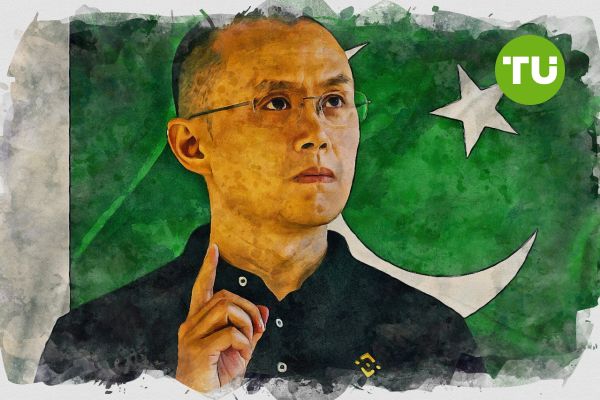Transformation time: Why Pakistan hired Changpeng Zhao
 Changpeng Zhao
Changpeng Zhao
Just a few years ago, Pakistan was preparing to ban digital assets. But the government changed course — not only giving the green light to state crypto projects, but also hiring the founder of Binance to help lead their implementation.
Pakistan rarely makes headlines when it comes to cryptocurrency. Yet recently, it found itself at the center of attention across the crypto media landscape. On April 7, it was revealed that Binance founder Changpeng Zhao had joined the Pakistan Crypto Council (PCC). This newly established body will oversee the development of blockchain initiatives and digital assets in the country.
Loading...
What role will the former Binance CEO play? Zhao is expected to help design the regulatory framework for the country’s crypto industry, develop necessary infrastructure, and attract investment. He has already held a series of meetings with local officials, outlining plans to introduce educational programs for children and support the broader development of Pakistan’s digital economy.
Loading...
The status of cryptocurrency in Pakistan
For years, Pakistan maintained a negative stance on cryptocurrencies. Government bodies frequently cited concerns about money laundering, terrorism financing, and speculative activity.
In 2018, the State Bank of Pakistan issued a circular prohibiting banks and financial institutions from offering crypto-related services. As a result, crypto exchanges operated in a legal gray zone — lacking formal registration but continuing to attract users, particularly youth and freelancers.
By 2022, regulatory pressure had intensified. The Pakistani authorities and central bank recommended a full ban on cryptocurrencies to the Supreme Court and called for penalties against exchanges for “illegal activity.”
In January 2023, the government reiterated its position, declaring that cryptocurrencies would “never be legalized.” This sparked concern among the crypto community, especially as Pakistan was already in the global top ten for P2P trading volume. And by 2024, it ranked in the top ten countries in Chainalysis’ Global Crypto Adoption Index.
Loading...
Still, the government could no longer ignore the growing interest and usage of crypto among its citizens — especially against the backdrop of rising global blockchain adoption. Pressured by local entrepreneurs and the IT sector, Pakistan’s leaders began to reconsider their position.
By late 2024, initial consultations with experts were underway, and in early 2025, officials announced the creation of the Pakistan Crypto Council. The country officially shifted from a stance of prohibition to one of integration and regulation.
Pakistan’s crypto plans
According to PCC head Bilal Bin Saqib, Pakistan no longer wants to be a bystander — it aims to actively join the global crypto race. The country sees the industry as a tool for capital inflow and employment for Web3 professionals, with CZ helping to lead the charge.
One of Pakistan’s first major crypto initiatives is the development of data centers for mining and AI infrastructure. The country plans to channel its surplus electricity into this sector and has already begun discussions with mining firms.
Loading...
“Pakistan’s energy sector is facing challenges, especially high electricity tariffs and excess generation capacity,” said Bilal Bin Saqib. “The rapid rise of solar energy has further complicated the situation as more consumers switch to alternative energy sources to cut costs.”
Such initiatives — combining crypto mining with energy balance solutions — could provide a much-needed boost to fintech development. They promise new jobs, economic growth, and the transformation of Pakistan into a global tech hub.
A shift in direction and its potential
In just a few years, Pakistan has undergone a dramatic shift in its approach to crypto — from harsh rhetoric and prohibition to a progressive integration strategy. One of the first tangible steps in this transformation was the launch of a mining initiative aimed at repurposing excess electricity to power data centers. This not only addresses energy inefficiencies, but also lays the groundwork for building a long-term tech infrastructure.
The appointment of Changpeng Zhao to the Pakistan Crypto Council underscores the government’s commitment. With his experience, international connections, and deep understanding of crypto infrastructure, Zhao may play a pivotal role in shaping Pakistan’s digital future. If the country can maintain a clear strategic course, it could evolve from a crypto outsider into a major player on the global stage.













































































































































